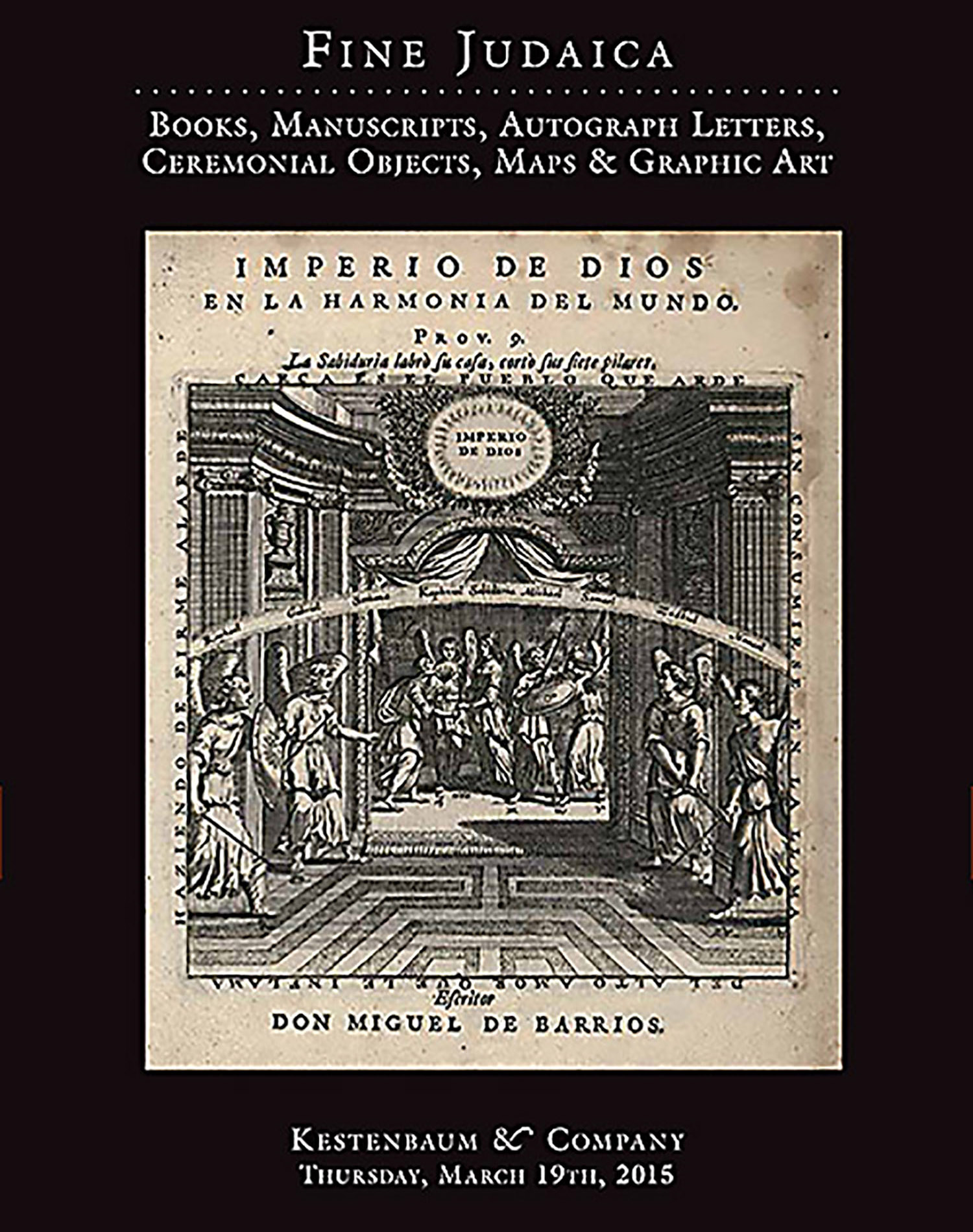(Weekly Newspaper). The Reform Advocate. Edited by Emil G. Hirsch (until his death in 1923). Successor editors include T. Schanfarber, Sidney J. Jacobs and Rabbi Gerson B. Levi.

AUCTION 64 |
Thursday, March 19th,
2015 at 1:00
Fine Judaica: Books, Manuscripts, Autograph Letters, Ceremonial Objects, Maps and Graphic Art
Lot 48
(AMERICAN JUDAICA).
(Weekly Newspaper). The Reform Advocate. Edited by Emil G. Hirsch (until his death in 1923). Successor editors include T. Schanfarber, Sidney J. Jacobs and Rabbi Gerson B. Levi.
Chicago: Bloch & Newman 1891-1947
Est: $5,000 - $7,000
Founded by Charles E. Bloch of the Bloch Publishing Company, The Reform Advocate entered the journalistic field as an advocate of progressive Judaism. With Emil G. Hirsch at its helm, The Advocate was a most fearless champion of Reform. (JE).
An early voice for Reform Judaism in Chicago, The Reform Advocate, (later just called The Advocate), was directed at a well educated, English-speaking readership. Articles discuss current events in the Reform movement, local and national politics. Also Jewish themes such as the modern relevance of religious practices such as circumcision and other precepts, thoughts on the weekly Torah readings, and themes of the Jewish holidays.
Early issues commence with lengthy sermons, usually penned by Rabbi Emil Hirsch and often quite severe in tone on the subject of the superiority of Reform to other Jewish denominations, and Judaism over other religions. Similarly, early issues are much focused on the German-American experience. Later issues focus more broadly on current events, both thorough treatment of European affairs, as well as more local concerns.
Many articles highlight the extent to which popular thinking regarding Judaism can frequently be cyclical: In 1937, Rabbi Joseph H. Gumbiner (later active in the Civil Rights movement), wrote: “Has Reform Failed? How many Reform synagogues are forces for social justice in the community? I seriously doubt if Reform Jewish youth, or youth generally in any religious grouping, has a sincere attachment to religion. Young people are not interested in theology…When religion examines our aims in life and seeks to point out worthy spiritual goals youth will listen. But whenever religion seeks to manipulate the occult, intelligent youth will have none of it…Precisely what form American Judaism will assume in the future one cannot say. It will probably be a kind of synthesis between the best in Orthodoxy and the basic principles of Reform.”
One perennial topic are polemical articles against Orthodoxy and their rabbis who insist that Reform Judaism is inauthentic and will result in the dissolution of Judaism.
An ad from 1937 calls for the reader to subscribe, since “Reading time of the cover-to-cover contents of the Reform Advocate is not so important as the thinking time you’ll put in after reading it.”
